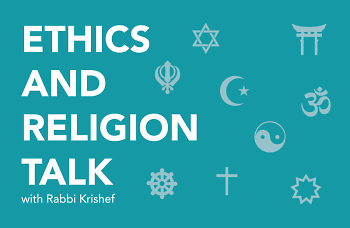Ray asks, “Should Christians purchase insurance on life, home, or health, or commit himself, his loved ones, and his worldly goods, entirely to the providence of God? (For a long time certain groups of pietists such as the Amish and the Netherlands Reformed have renounced and denounced insurance schemes. At one time, Dutch Calvinists refused to publish weather forecasts in their newspapers, on much the same basis.)”
Father Kevin Niehoff, O.P., a Dominican priest who serves as Judicial Vicar, Diocese of Grand Rapids, responds:
“Instead of traditional insurance, the Amish depend on both their church and their community. For example, if a house burns down, everyone in the community comes together to rebuild and donate funds to help the family get back on their feet again. The family helped then expects to repay this in the future when someone else in the community is in need. Likewise, when a member of the Amish community is admitted to a hospital there is a negotiation to pay cash for the hospital bill. The community comes together to raise funds to pay the hospital. Is this not what is meant by the providence of God? I judge it to be a form of insurance, although not typical.
“I posit that the virtue of prudence, which is the pre-eminent virtue, is a part of God’s providence. If a Christian has a community that will assist in helping him/her/their family get back on their feet like the Amish, they may not need the type of insurance referenced here. However, if someone does not have the above support, then prudence dictates the need for insurance.
“If someone wishes to pursue this further, you may review my resource: https://ohiosamishcountry.com/articles/amish-financial-matters.”
The Rev. Steven Manskar, pastor of Trinity United Methodist Church in Grand Rapids, responds:
“This is a false choice. Insurance is a means of God’s providence. Insurance is a way for you and all the other policy holders to pool their funds and provide for those who experience loss (home, auto, life). It’s a way for the many to help the few. Purchasing insurance is a way of honoring God by loving your neighbor as yourself.”
Linda Knieriemen, Senior Pastor at First Presbyterian Church in Holland, responds:
“What an interesting question. I’ve never considered that a religious tenet might impact my insurance decisions! This question arises because of what “Providence” means in certain factions of the Reformed Tradition. This is not my belief. Humans are not God’s puppets, programmed to live God-directed lives, unable to make human choices, some of them are poor choices, like texting while driving or smoking in bed. God guides humans and invites participation in achieving God’s broad plan and purposes. Would a loving God use a fatal car accident, a tumor in a teenager, a home fire are to bring about the wholeness and redemption of the universe? To me, this notion is inconsistent with who God is.
“Insurance is a way to provide for oneself and ones’s dependents when on those rare occasions that an expense is greater than ones ability pay. IF I believed that a car accident leaving me permanently disabled, or a house fire, leaving me homeless, or a tragic death of a spouse is God’s desire for me, then purchasing health, life, or home insurance would be in opposition to commitment to God. Rather, I believe that in every catastrophe, God’s providential grace and healing are present. I believe that there is always something, with God’s illumination and with time, which can be learned from tragedy. But to not buy insurance believing that catastrophe’s are God-chosen. No. When Christians buy insurance it is a way to preserve God’s abundant gifts of health, home, family stability. But for heaven’s sakes any insurance should be purchased wisely!”
The Reverend Colleen Squires, minister at All Souls Community Church of West Michigan, a Unitarian Universalist Congregation, responds:
“Unitarian Universalists would most certainly consider it wise to purchase insurance such as home and auto as well as life insurance. As for health insurance we would purchase that as well but most of us would strongly support some form of universal healthcare for all people. For us the idea of good health insurance coverage for all becomes a religious question because it is a moral, ethical, and economic justice issue. It is difficult to believe in the inherent worth and dignity of every person and also see so many Go Fund Me campaigns with people pleading for support for an operation or some other health care need. Scripture asks us, are we not our brother’s keeper, universal healthcare is one way to care for one another.”
My response:
Clearly, I’m not a Christian, but for what it’s worth – insurance is nothing more than pooling resources and sharing risk. I pay my premiums hoping I won’t need to use them and knowing that even if I never use them, I’m supporting others who have needs. What a great act of lovingkindness!
This column answers questions of Ethics and Religion by submitting them to a multi-faith panel of spiritual leaders in the Grand Rapids area. We’d love to hear about the ordinary ethical questions that come up in the course of your day as well as any questions of religion that you’ve wondered about. Tell us how you resolved an ethical dilemma and see how members of the Ethics and Religion Talk panel would have handled the same situation. Please send your questions to [email protected].
The Rapidian, a program of the 501(c)3 nonprofit Community Media Center, relies on the community’s support to help cover the cost of training reporters and publishing content.
We need your help.
If each of our readers and content creators who values this community platform help support its creation and maintenance, The Rapidian can continue to educate and facilitate a conversation around issues for years to come.
Please support The Rapidian and make a contribution today.
